Women's World Cup: Referees inspired by hijab being worn
- Published
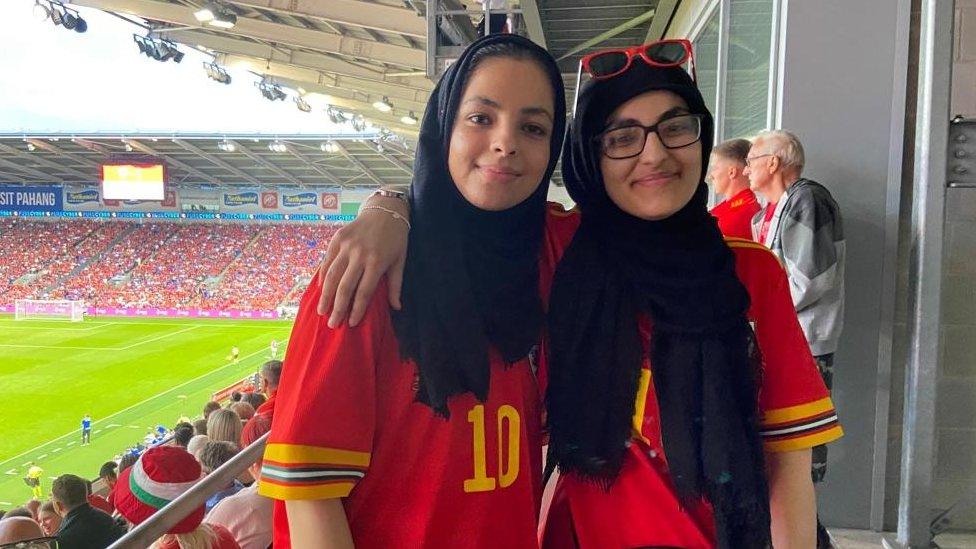
Sisters Rosheen (left) and Eleeza Khan are Wales' first Muslim female football referees
"It sounds stupid but we didn't think girls like us could become referees."
Teenagers Rosheen and Eleeza Khan are Wales' first Muslim female football referees.
The sisters, from Cardiff, said they loved the sport from a young age but never saw anyone that looked like them.
They said watching the Women's World Cup, which has seen the first player and referee to wear the hijab at the tournament, was inspiring.
After a chance opportunity and a six-hour online course with the Football Association of Wales (FAW), they are now hoping to be the role models they never had growing up.
Despite finding the first time they refereed a match "scary", with parents who are "not forgiving", the sisters loved it.
"We looked different and we dressed different, but we absolutely smashed it," they said.
Sisters Rosheen, 19, and Eleeza, 17, who live in Grangetown, said their dad, who is a Liverpool fan, introduced them to the "beautiful game".
"We are five sisters, so if he wanted to share his love of football it was going to have to be with us.
"We loved watching tournaments like the Euros and World Cup, but we never saw any representation of people who looked like us, who wear the hijab."
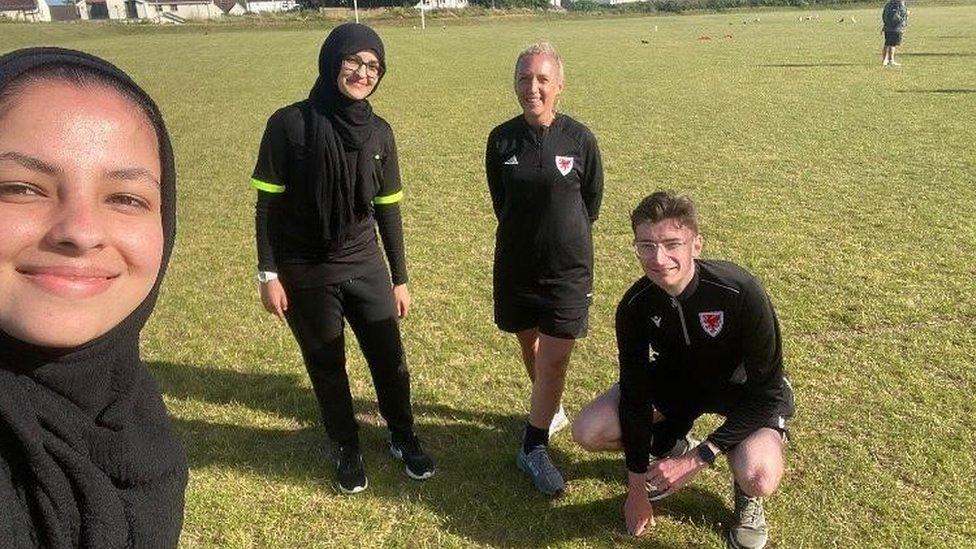
The sisters hope to be "role models for the next generation"
A hijab, also known as a headscarf or covering, is worn by some Muslim women to cover their head and hair, while others wear a burka or niqab, which also covers their face.
Headscarves are seen as a sign of modesty by people who wear them and is a symbol of their religious faith for Muslims.
Despite loving football, Rosheen felt "the role models weren't there, and we just hope that we can champion this movement and be the role models for the next generation".
"We want to break down as many barriers as possible so other girls can access the sport, whether that's playing, coaching or refereeing," added Eleeza.
The sisters said despite thinking it was not a job for them, they had not had much judgement from the football community.
"Most of the stereotypes we get are mainly from our community and a lot of internal barriers - us thinking we're not good enough.
"And then being from a south Asian community, there are a lot of eyes on us, people looking at us, people saying we shouldn't be there, that we are girls and shouldn't be playing football, and we should be doing something else, like learning how to cook."

Eleeza and Rosheen Khan say seeing a Welsh referee and a hijabi referee was inspiring
Eleeza said her parents, who moved to the UK from Pakistan, "have been very supportive".
The pair now want to start their own football team in Grangetown as they want "Pakistani Muslim girls to know sport is for them too".
Watching the diversity at this year's World Cup tournament had been "amazing", the sisters said.
"Seeing Heba Saadieh, the Palestinian referee who wears a hijab, on the biggest stage in the world was amazing," said Eleeza.
"And it was so cool to see Nouhaila Benzina, was inspiring, and EA Sports including her in the game is just incredible."
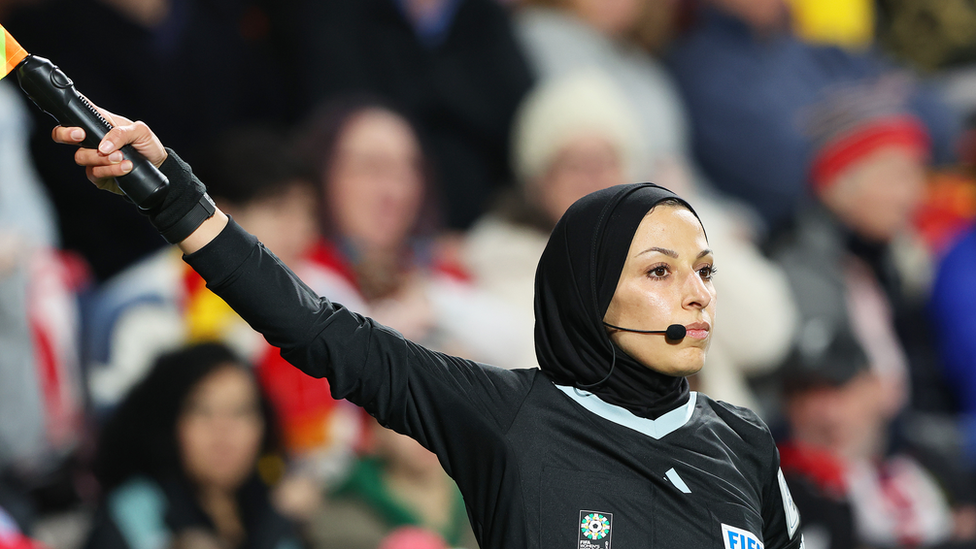
Heba Saadieh was the first Palestinian referee, male or female, to officiate at a World Cup
Rosheen added: "It just makes you feel seen and it's just great to see this representation. And then you have Cheryl Foster too, who is representing Wales."
Rosheen said that, although there had been progress, there was still a lack of diversity in the sport, underlined by a lack of suitable kit for her and her sister.
The sisters are determined to continue in the industry, having qualified as coaches, and have big ambitions for the future.
"We don't know if we will get to referee at the top level, but it's great to know that it is an option, but we will continue to referee in the lower leagues and the grassroots game."
The FAW said it was committed to ensuring football was for everyone and said it was "incredibly important" that football's workforce represented Wales' diversity.
The Football Association has laid out plans to recruit 50% more referees from "historically under-represented backgrounds", meaning an increase of 1,000 women and 1,000 black or Asian referees at all levels by 2026.


Related topics
- Attribution
- Published30 July 2023
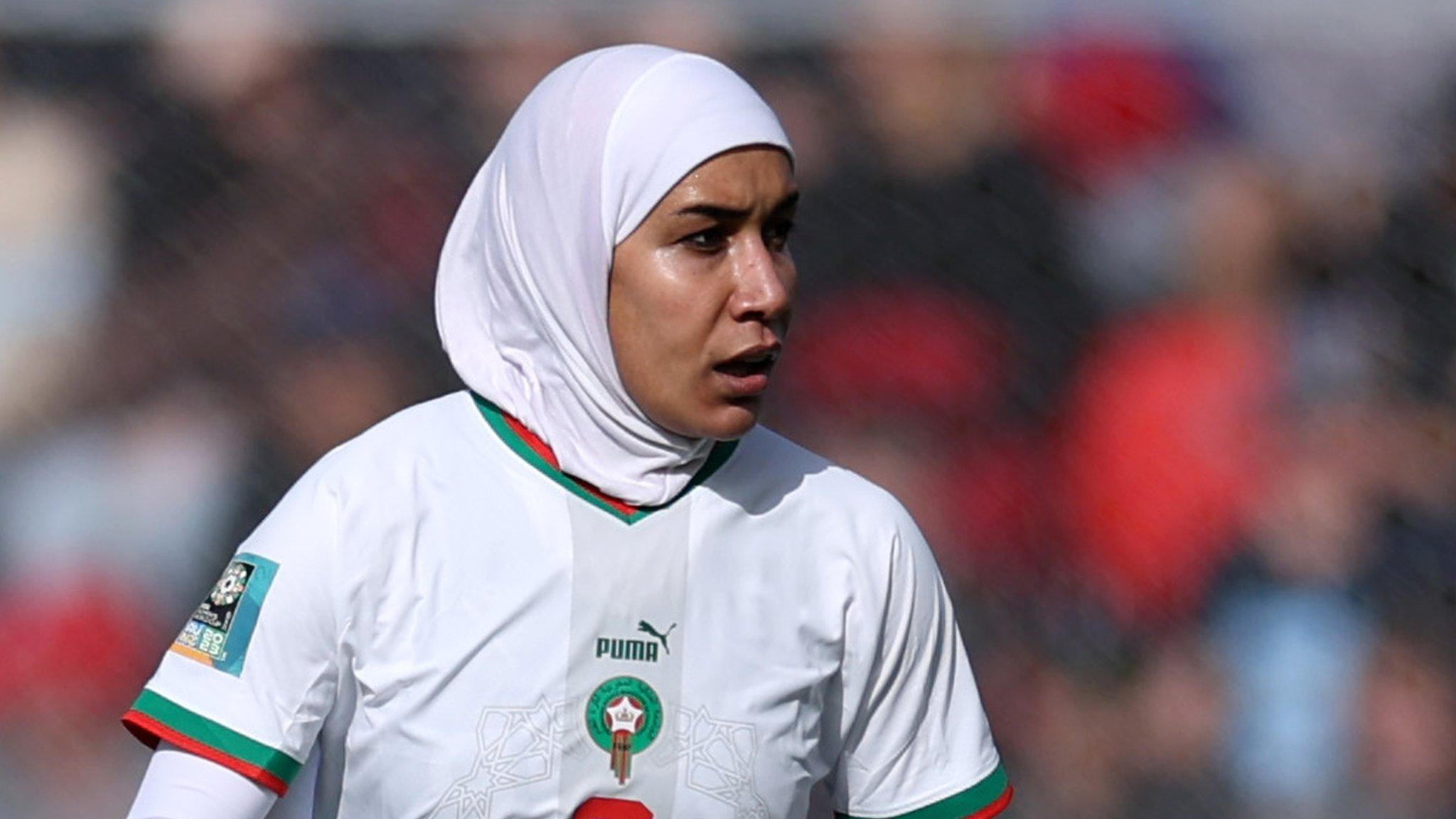
- Attribution
- Published23 July 2023
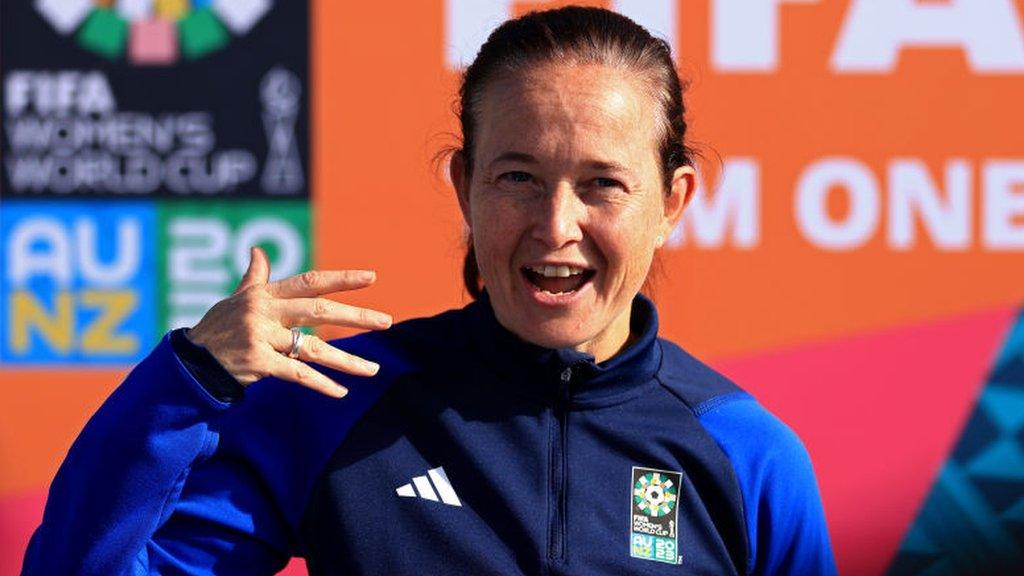
- Published10 March 2023
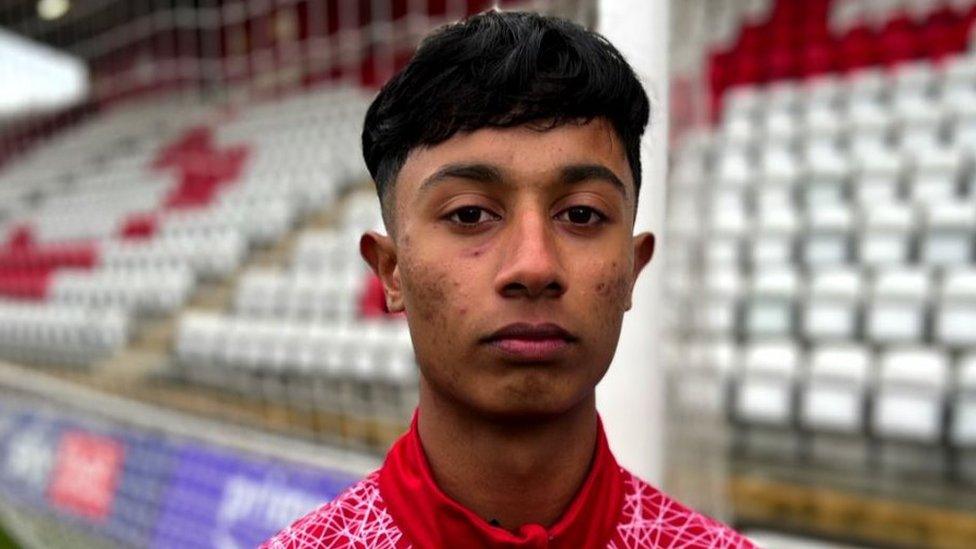
- Published6 January 2023
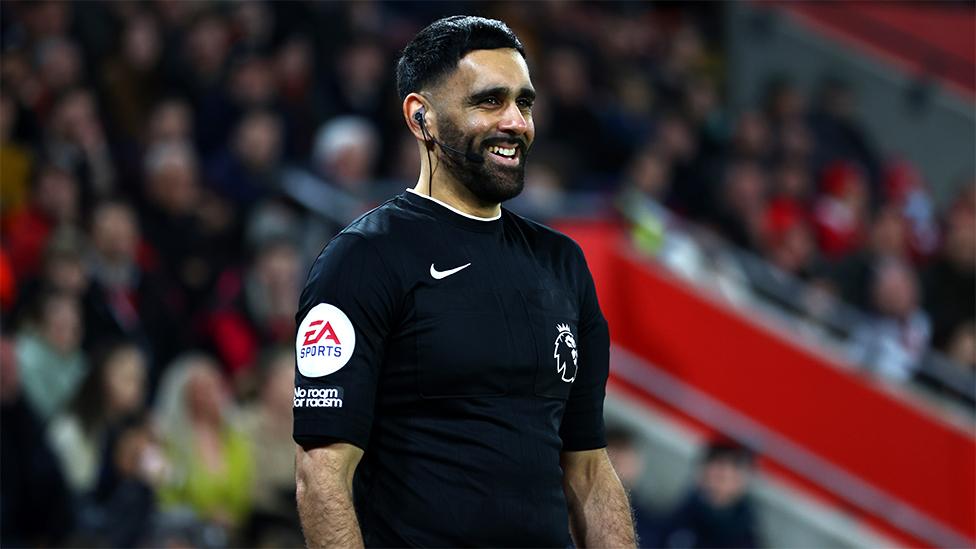
- Published1 December 2022
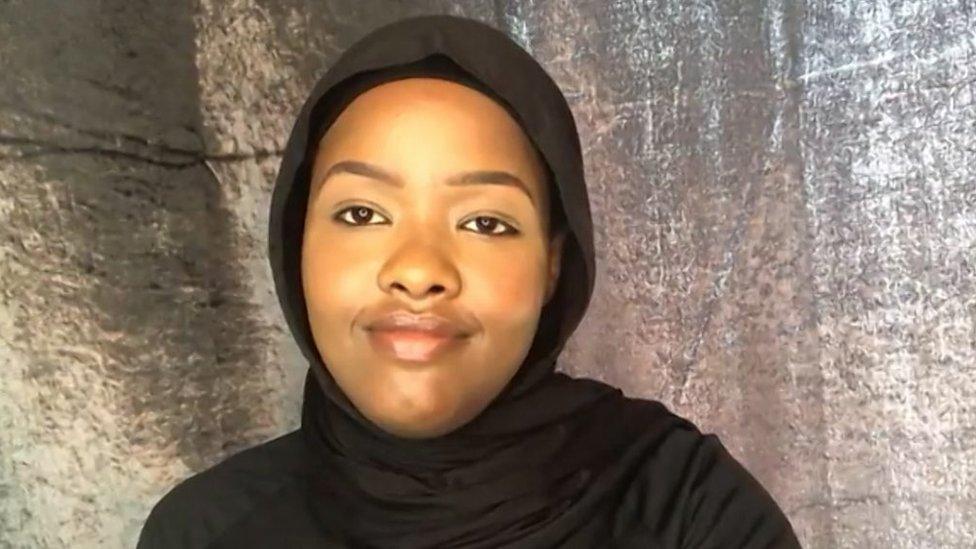
- Attribution
- Published29 November 2022

- Published1 June 2022
